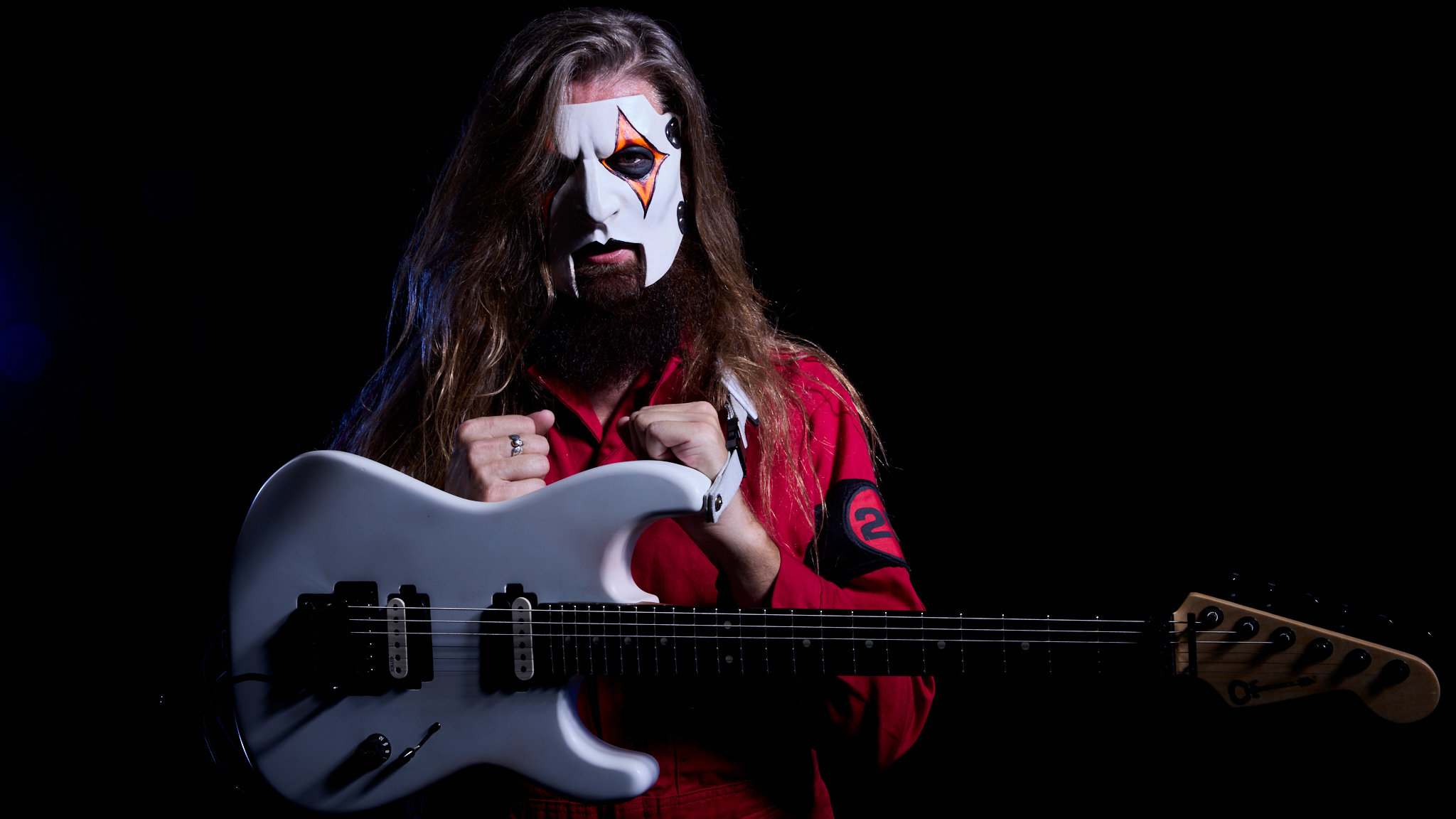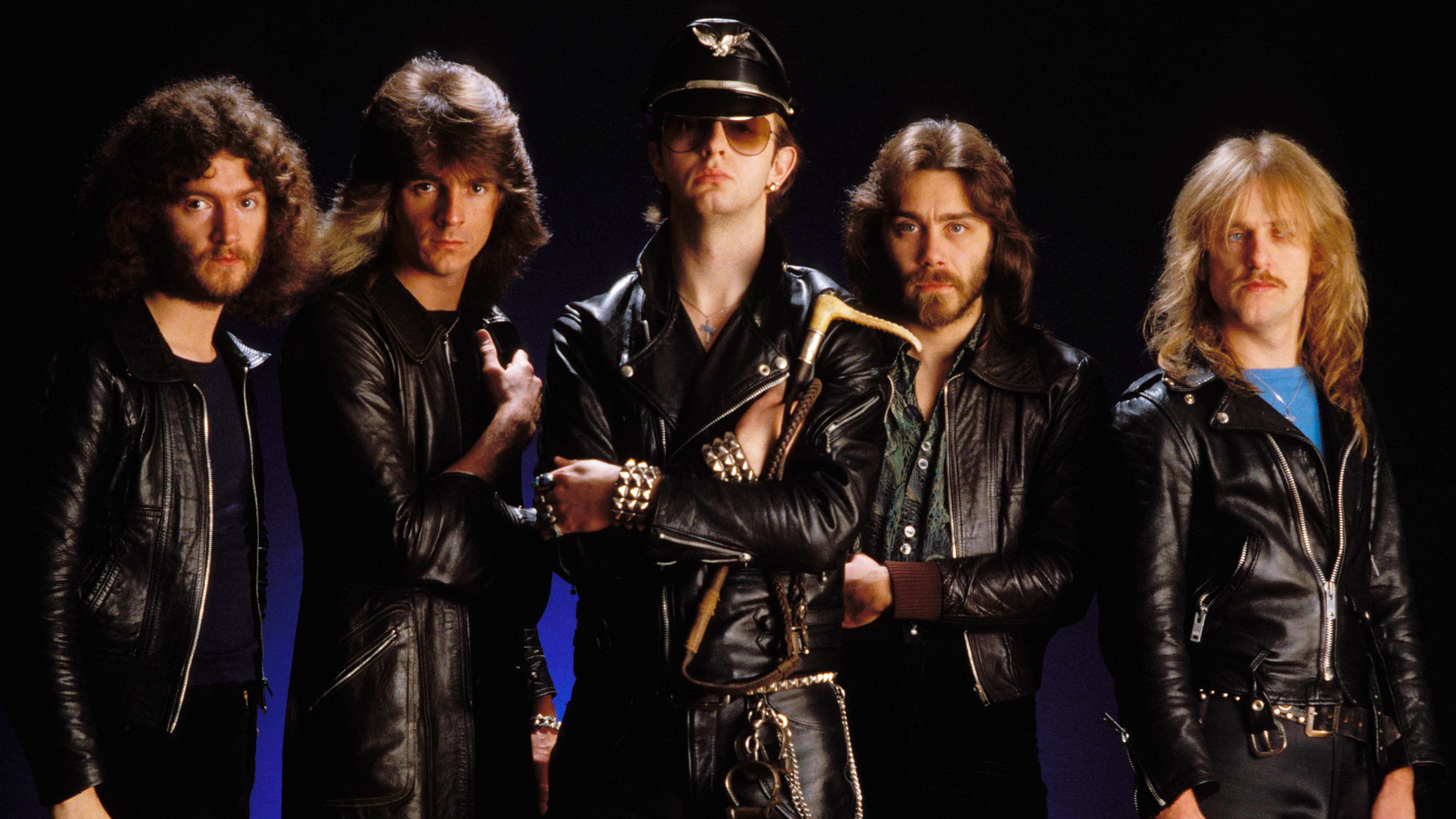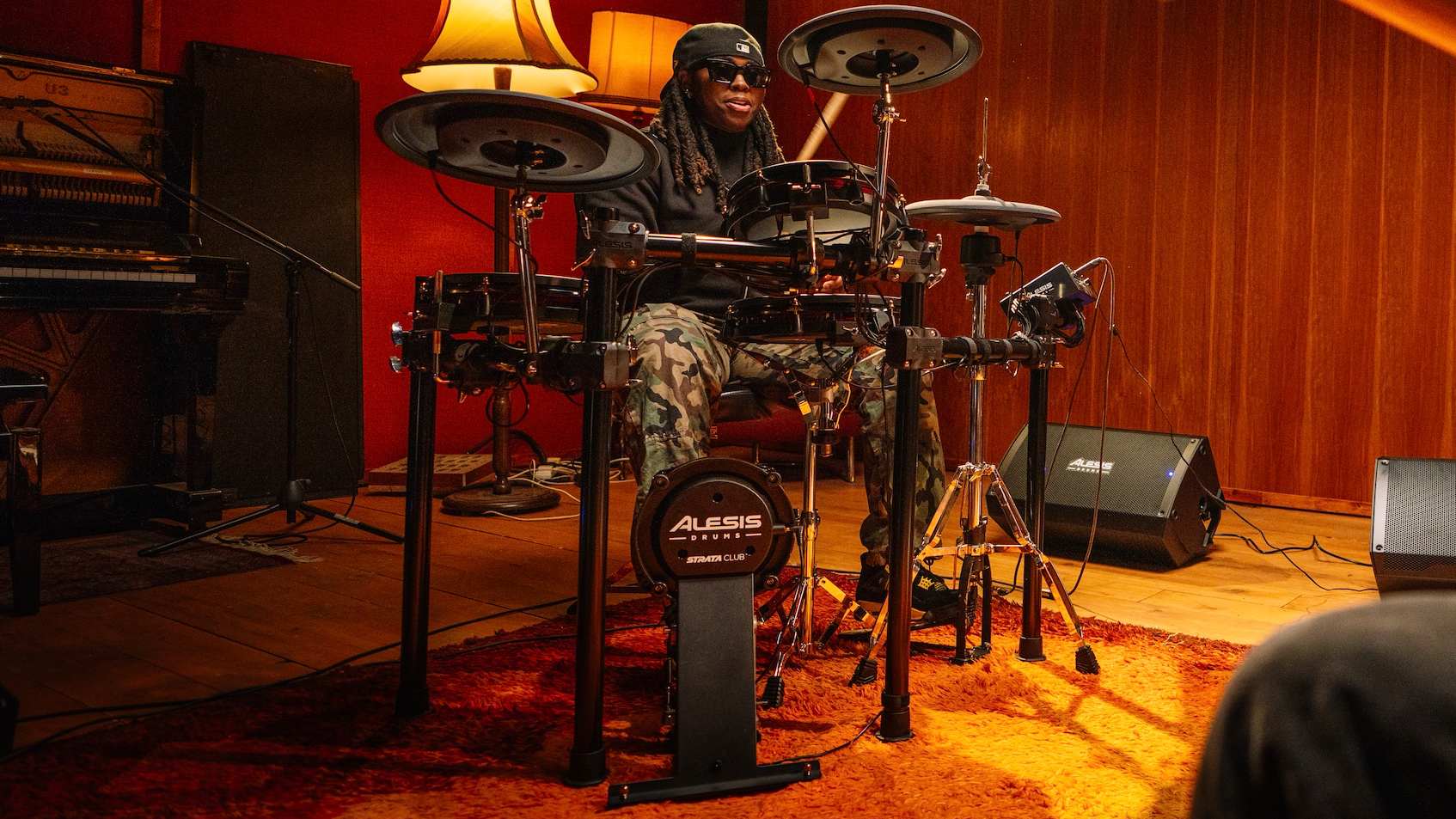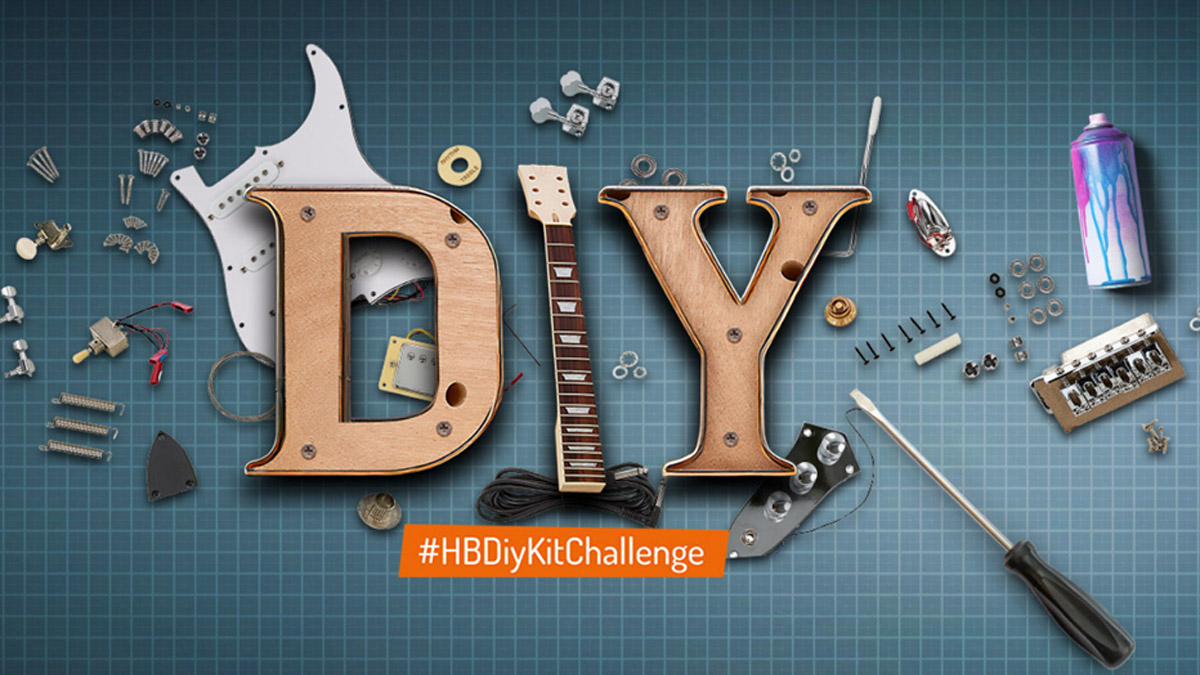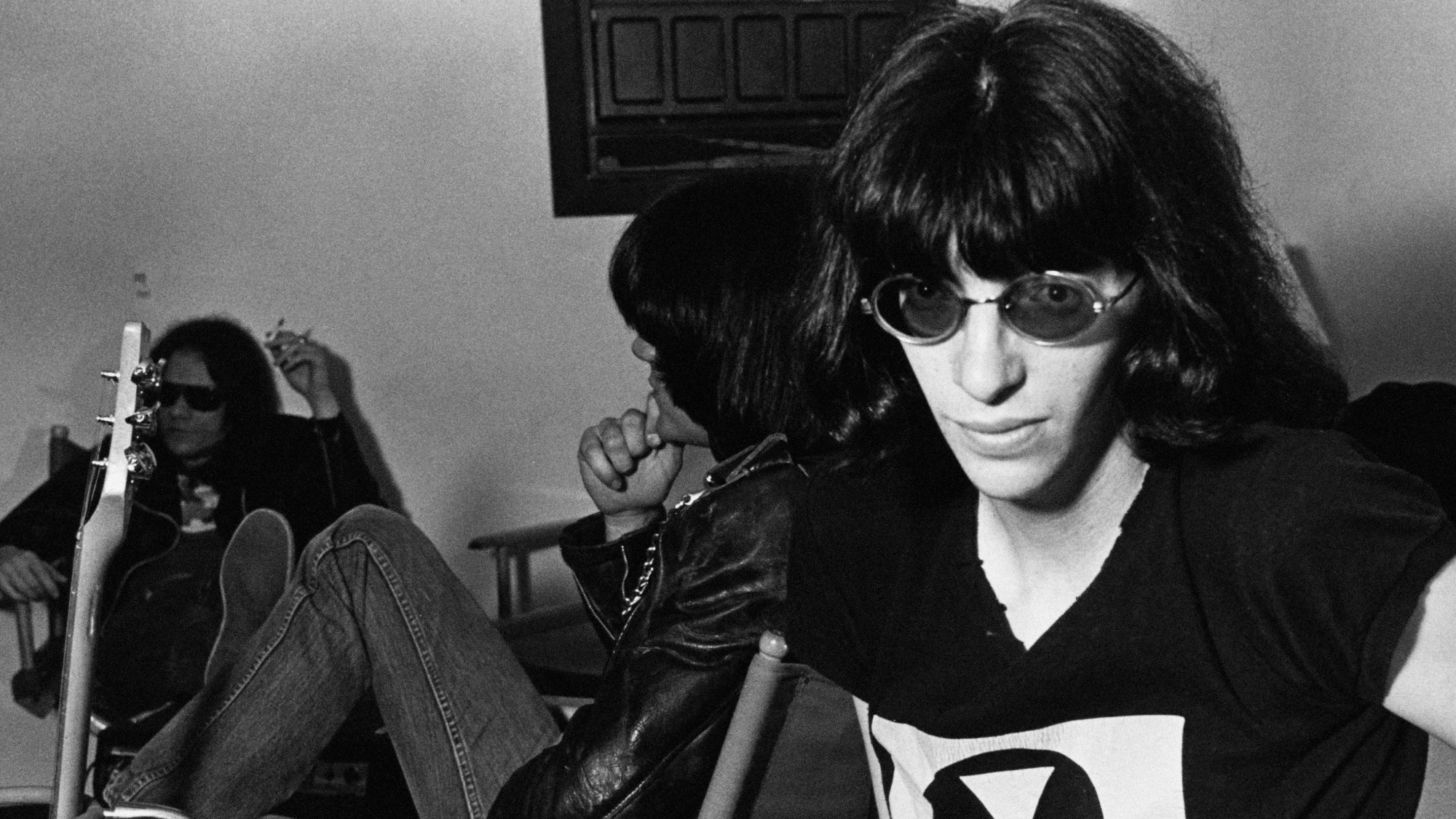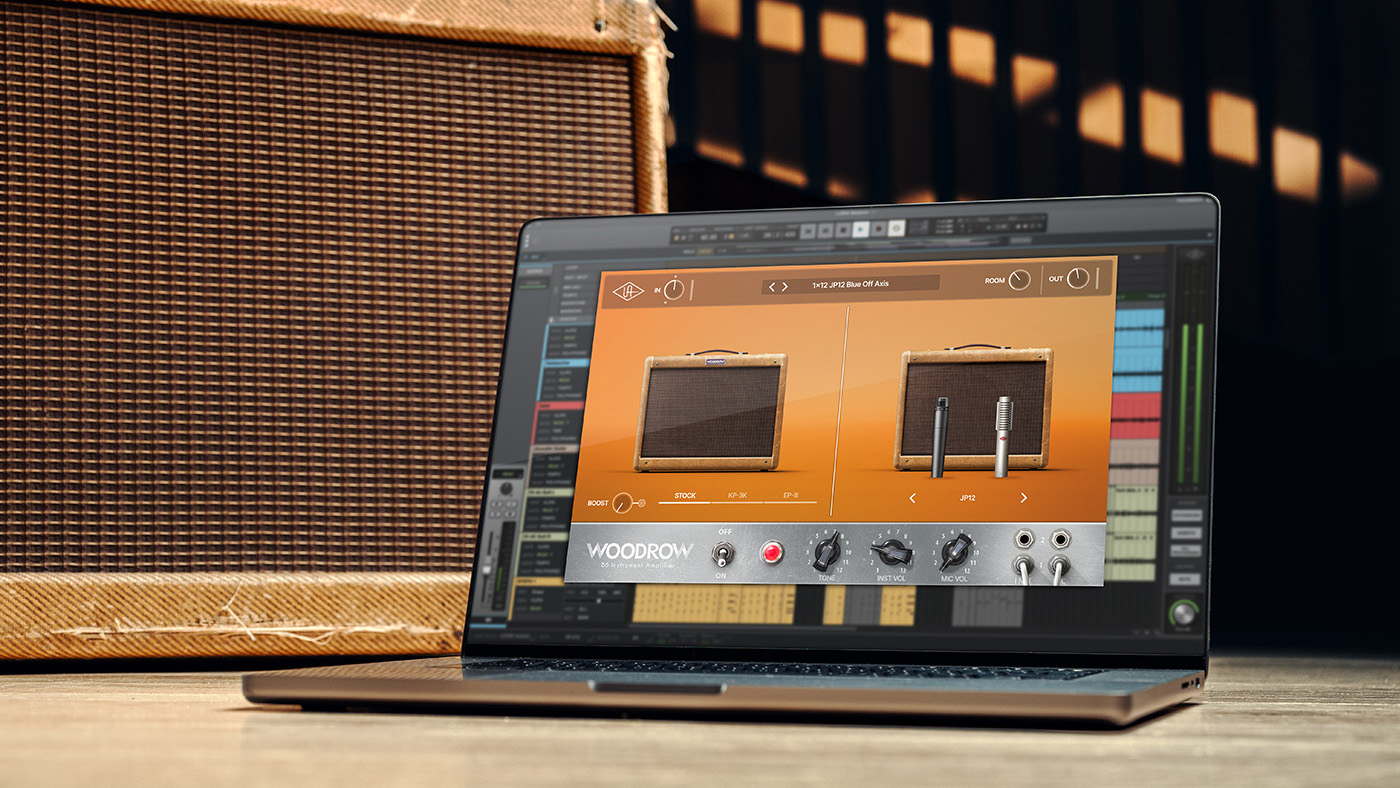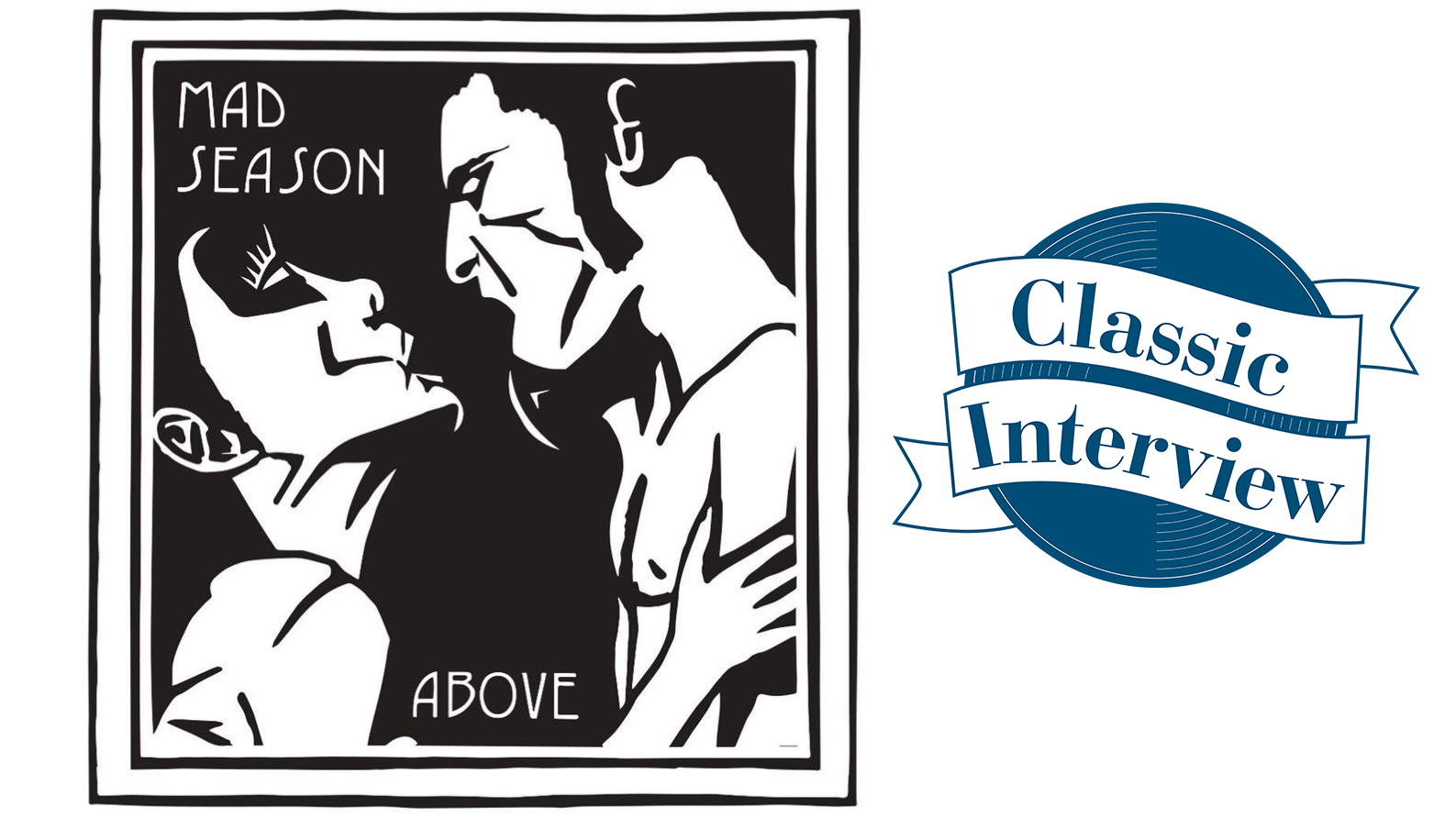
In 2013 Rob Laing interviewed Mike McCready for Total Guitar magazine to mark the reissue of Mad Season's only album Above, complete with additional tracks that Mark Lanegan had recorded vocals on. Here, for the first time, is an extended version of that chat.
It's autumn 1994, and Seattle’s music scene is on a comedown. Kurt Cobain is dead by his own hand, but other bands are facing their own demons. Alice In Chains’ frontman Layne Staley is in thrall to the heroin addiction Cobain had struggled with, and during the production of their third album, Vitalogy, Pearl Jam’s Mike McCready has checked into rehab for his own substance problems.
Getting clean and sober and trying to get my buddies to do the same was the initial response of what I wanted the band to be
“It was a strange time,” Mike tells us. “We were very young and becoming big rock stars – or already had been – and there was a lot of partying and abuse of things. Getting clean and sober and trying to get my buddies to do the same was the initial response of what I wanted [the band] to be. But that was super naïve; you can’t [get clean] unless you really want to individually.”
McCready met bassist John Baker Saunders in rehab and their friendship was the catalyst for the band that would become Mad Season when Staley and Screaming Trees’ drummer Barrett Martin joined. Saunders’ blues schooling from his time in Chicago would flavour Above’s dark mix into a unique proposition.
It’s one of grunge’s most intriguing stories: a band that formed, recorded an album and played six shows in their six months together. Now, with the Above album reissue, Mike revisits the mixed emotions of a pivotal point in his career as a guitarist and songwriter…
In terms of Layne and Baker passing away and dying from addiction it’s terribly sad and I think about those guys a lot – where they’d be now and what their value system would be now compared to what it was back then
Was working on this reissue a bittersweet experience for you?
“For sure. It was a strange time, we were all very young and becoming big rock stars, or already had been, and there was a lot of partying and abuse of things. So getting clean and sober around that time and trying to get my buddies to do the same was the initial response of what I wanted [the band] to be.
Get the MusicRadar Newsletter
Want all the hottest music and gear news, reviews, deals, features and more, direct to your inbox? Sign up here.
"But that was super naïve on my part because you can’t [get clean] unless you really want to individually. In terms of Layne and Baker passing away and dying from addiction it’s terribly sad and I think about those guys a lot – where they’d be now and what their value system would be now compared to what it was back then. There’s kind of a hole there. But on the positive side they were around for a little while and they created some pretty cool music and I was lucky enough to play with them. And that’s what that record is.”
And you got to finish some old songs with Mark Lanegan for this version.
“I was very happy to finally have Mark Lanegan put some stuff over the top of that, I didn’t have him do it – he wanted to do it.
"I’d been wanted him to sing on it for sixteen years and it finally fitted in his kind of world, and he had time to do it so I was stoked. He did a great job and we got to remix the record. It was an interesting journey I’ll say that much.”
It was an intense time and a liberating time in that we could do whatever we wanted and create music that way and not be under a time schedule where we had to be out on tour
Where did the name Mad Season come from?
“The name came from England. We were in Surrey with Tim Palmer at Ridge Farm Studios mixing the Pearl Jam Ten record and I was walking around with my headphones and cassette recorder – which we had back in those days – listening to Wish You Were Here and Pink Floyd’s Animals. I’d say I was a little bit… I was on a substance maybe, and I came back and it had been raining. It was really cool to be listening to those records and be in England.
"I came back into the studio and I was talking to someone who was working there and they said, ‘Oh it must be the mad season.’ And I was like, ‘What’s that?’ Immediately thinking what a cool term. And it was a term for when the hallucinogenic mushrooms came up. So I stowed it away for four or five years and thought, I’m going to use that for something one day whether it’s a song. So the name has ties to England.”
What was the atmosphere like in the Seattle scene at the time?
“It was deep in it. We were all off of tour and there was a lot of club activity going on and we had time to hang out together as we weren’t all out on the road. The Trees were back for a little spell, Alice was back and we were back. So we were all kind of living in this second wave of success that came from Seattle and we were enjoying it.
"It was an intense time and a liberating time in that we could do whatever we wanted and create music that way and not be under a time schedule where we had to be out on tour. We had a little bit of time and nobody was touring so let’s get together and just jam. So we did jam and then Layne said, 'Let’s go into the studio' so we’re like, ok we’re going to follow your direction on that.
"Layne got involved very quickly and we discussed it and I said, 'Dude you write whatever you want to write, you’re a great lyricist and that’s how this things going to be'. We’re all going to bring our own ideas but it’s got to be a democracy in a way and let’s have fun with this. So that was the kind of atmosphere that it was born of.”
I felt like I wasn’t intimidated with those guys and in Pearl Jam at the time I felt pretty intimidated
So the writing was very instinctive for you?
“I think Baker, who played bass, brought a blues element to it that I gravitated towards a lot. Layne brought his amazing voice and songwriting ability. Barrett brought his multi instrumental totally killer hard drumming. But would also bring in things like vibes, violas. He’s one of the smartest guys I’ve ever met that could bring a lot more than rock and that appealed to me.
"I loved rock and I was bringing that to it too but I got to experiment. What Mad Season was to me at that time was a freedom and I learned how to write song. I felt like I wasn’t intimidated with those guys and in [Pearl Jam] at the time I felt pretty intimidated. Because I was with guys who were really good songwriters, all type A personalities and I felt like maybe I didn’t have the chops when I was with them. I was the lead guitar player and I was good at that but to write songs… I didn’t really get the confidence to do that until Mad Season happened. So that band was a huge deal for me.”
So going back to Pearl Jam after that, you could contribute more?
“I did because when we did the Yield record I had three songs on it – I had Given To Fly, Faithful and one other I can’t remember [it was Brain Of J]. So prior to that I would have brought a couple of riff ideas or something.
"It helped me structure songs. And that’s kind of the good thing about our band, Ed [Vedder] will get to go and do his solo thing, Stone[Gossard] will do his solo thing, Jeff [Ament] will do Random, Matt’s [Cameron, drums] with Soundgarden right now and that’s the biggest one. We hopefully bring all that back into the home of Pearl Jam. Mad Season was another extension of that.”
“I think I wanted to be Jimmy Page for that record for sure
What was your mindset as a guitarist back then?
“I think I wanted to be Jimmy Page for that record for sure [laughs]. I was going through a huge Zeppelin phase that I go in and out of and I’m currently in another one right now. I go in and I listen to everything and I overanalyse it and I feel it. I’m listening endlessly to In The Light right now and it fully blows my mind.
"But at that time I even went as far as to get a guitar like his – the doubleneck SG [Gibson EDS-1275]. I used that on Lifeless Dead, and two others including the song All Alone. That’s the chimey delay stuff. I’m playing the six-string of the doubleneck but the pickup for the six-string isn’t on, the pickup for the twelve-string is on. The relative harmonics that I’m hitting are coming through in waves, I guess, and it has a little delay on it too. That was an accident.”
It sounds like your channelling the spirit of Jimi Hendrix on the instrumental track November Hotel.
“Well with Hendrix, since I’m from Seattle [too]… but November Hotel was my dad’s call letters on the back of his F4 Phantom from Vietnam when he was a pilot. That was on the tail of his plane. If you imagine a rumbling plane coming off of a carrier in the Gulf Of Tonkin in 1968, that was my artistic representation of how that would sound with Barrett’s thundering-type drums on it.
"I just went for it and Layne’s on there too… it was a jam. Barrett really inspired me because he brought these ominous sounding thunderous drums and he’s so good at that. That’s why I wanted to play with him in that band, because I’d seen him do that in the ‘Trees for so long.”
I wanted to do something like the Led Zeppelin [live] footage I had seen of Plant and Page going back and forth between voice and guitar
Did Layne play much guitar on the album?
“He did, he bought in I don’t Know Anything and he plays guitar on that. He plays on November Hotel, and Barrett plays on I’m Above. I think that was the extent of it, he would primarily sing and that’s what he was a master at.
"When he brought in I Don’t Know Anything I said, that’s awesome – we’ve got to do that. It was such a weird riff because it sounded two-dimensional and then it turns into this three-dimensional kind of a groove to me. He had some cool lyrics for it and it rocks so we got to play that with him luckily.”
It’s interesting to hear the dynamics between his voice and your guitar on Artificial Red…
“That one was primarily Baker-based and [call and response-style] and I always thought that was rad.
"I never tried to do that with Ed because our songs don’t do that, or lend themselves to do that. But Mad Season was an open pallet so we thought, let’s try this. I think that happened naturally, to try not to step on his vocal but answer it."
I could feel his pain and his suffering. His wanting to get out of the misery that he was in but the fact that he couldn’t do it.
River Of Deceit feels like the album’s key song and a very confessional song from Layne, especially now looking back. What are your memories of writing and recording it?
“I had that riff for a little while and I never felt like I could bring it into Pearl Jam. Once again, that was kind of my mindset back then. I was a little shy and I didn’t know how I felt about it. So I brought it in and the guys dug it and we were just sort of jamming on it. Then like anything when playing with Barrett, he got all excited about it and said we can put vibes on it and do this and that, or viola. He added that element that gave it a less linear quality.
"Layne gravitated towards River Of Deceit in terms of the lyrics because we sat down and he told me what they were about. They were about a book called The Prophet by Kahil Gibran. The main line in it is ‘My pain is self chosen / at least so the Prophet says’… it was very deep, I could feel his pain and his suffering. His wanting to get out of the misery that he was in but the fact that he couldn’t do it. He was trying to do that, it seemed in my mind, and doing that through lyrics. It’s very ominous what he was singing about because he was very honest.”
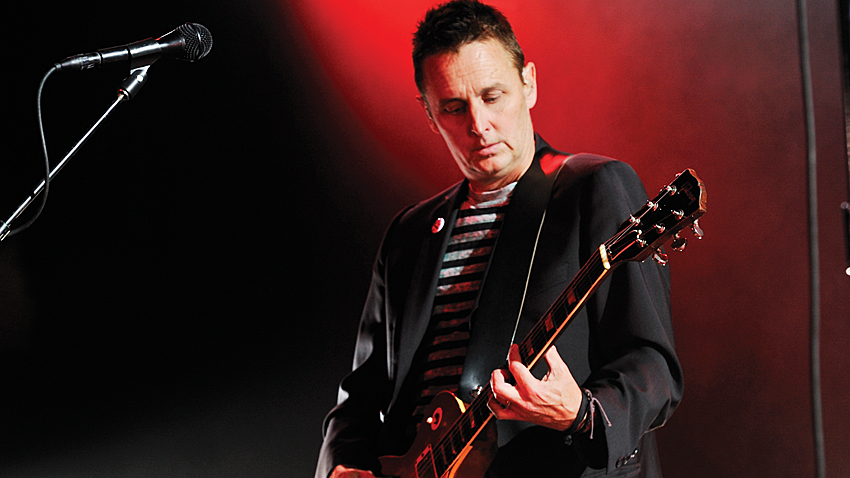
I think I mainly used my black 1969 Les Paul which I’ve since smashed on a Neil Young tour… those were the crazy days
Is it true you bought your ’59 ‘King Of Kings’ Les Paul around the time of recording Above?
“I did yes but it didn’t make it onto the music. I had my ’59 Strat [that turned out to be a 1960 model] with the out of phase treble pickup – of the five positions it was the second from the top. I had a black Les Paul [Custom] that I used on that record. I ended up buying a purple one too because Layne had this crazy purple one I thought was kind of cool. But that was after the recording. .
"So I didn’t have the ’59 yet but I bought it up in Seattle and I got a really good deal on it from Danny’s Music in Everett. I think I traded a few guitars in for it and it cost about 13 grand at the time. Which kind of blows my mind.”
And you still tour with it which some people may find quite surprising…
"“Well I feel like it’s the best sounding Les Paul that I have, the easiest to play, the best one for Alive, and for a couple of other ones. I trust the crew and I trust everyone.
"You never know what’s going to happen but guitars are meant to be played, in my mind. I’ve had people offer me stuff for guitars and I knew they’d take them and put them on the wall or do whatever. But they’re meant to be played. And I want to play that guitar because it plays amazingly – like the ‘59s do. It sounds amazing so I guess I’ll take the chance! It’s worth it.”
It sounds like you used a phaser subtly quite a lot as part of your tone on Above – is that the case?
“Yes I had a Phase 90 and I was using that over and over. [X-Ray Mind] also has a Univibe turned all the way up and that’s with the double neck SG’s 12-string.”
Did you take in the amps you’d been using with Pearl Jam at the time?
“Pretty much, that’s kind of what I knew. I didn’t experiment too much. I probably used a JCM 800 head because that’s what I was using through 4x12 25-watt speakers. Then for a clean tone I was probably going through my [Fender] Bassman. I’m 99 % sure that’s what I was using. There’s probably a Fender Twin in there too.”
I feel like I was just at the beginning of really starting to learn how to write songs back when Mad Season was happening
Listening back to your performance on the Mad Season record, how do you feel that you’ve changed as a player over the years?
“I think I’ve gotten a hell of a lot better… well I hope! I’ve probably played maybe 500 shows since then, I’m guessing, and I’ve recorded a bunch of records and played on people’s records. I feel like I was just at the beginning of really starting to learn how to write songs back when Mad Season was happening.
"I just spent six months learning how to play Eruption by Eddie Van Halen. I’ve kind of got it, I by no means have it 100 per cent but I couldn’t have done that back then, or I wouldn’t have wanted to. I would have thought that was kind of silly but now I’m like; I’ve got to do this!
"I played it the other night during a Flight To Mars show and I think I did pretty well. That being said, I did play it for six months every night working on it. Because it’s super hard, obviously. It was a personally challenge for me and out of that it helped me play differently, not in terms of tapping or anything like that, but it’s made me feel different about the guitar. It’s made me play different to how I’ve ever played in my life. It’s been an interesting journey trying to figure Eruption out. I couldn’t have done that back in Mad Season, I thought I was too cool for it. Now I just want to learn it because it’s totally genius."
I feel like life is a learning process and as an artist I want to be able to continue to create and be challenged by it and bring things to Pearl Jam that I haven’t before
It’s great to hear that someone who has achieved what you have still wants to learn more on guitar
“Well I feel like life is a learning process and as an artist I want to be able to continue to create and be challenged by it and bring things to Pearl Jam that I haven’t before. Like do a little bit of scoring, I scored a move called Fat Kid Rules The World and that was a really cool experience. I’m taking piano lessons right now. I want to learn.
"I just feel like there’s not enough time and I feel good about where I’m at with guitar. But the Van Halen thing came up and I thought I’m gonna try this. On YouTube they have this guy, I think his name is David, he takes it apart note for note and I learned it that way. I tried to listen to it to figure it out but there’s no way on the planet I could do that. I wanted this guy do it and I played it over and over and over again. It’s helped me to become a better guitar player.”
Classic interview: Pearl Jam's Stone Gossard on Brad, Bigsbys, Chris Cornell and being "the luckiest man in rock"

Rob is the Reviews Editor for GuitarWorld.com and MusicRadar guitars, so spends most of his waking hours (and beyond) thinking about and trying the latest gear while making sure our reviews team is giving you thorough and honest tests of it. He's worked for guitar mags and sites as a writer and editor for nearly 20 years but still winces at the thought of restringing anything with a Floyd Rose.



